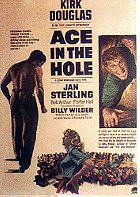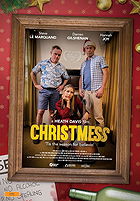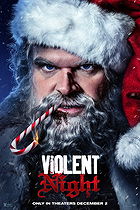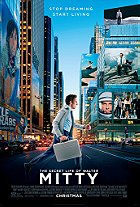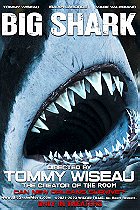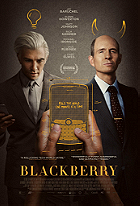Despite Fox's longstanding reluctance to produce a Deadpool movie, 2016's Deadpool was a massive hit for the studio, becoming an unmitigated box office success and establishing the iconic titular character as a pop culture force to be reckoned with. It was also something of an experiment, as viewers had no idea what to expect since the source material was not exactly mainstream before the film's release. A weight of expectations surrounds 2018's Deadpool 2, with film-goers now familiar with the exploits of Deadpool and wanting another round of entertaining, blood-soaked mayhem with a side serving of quips, meta humour and breaking the fourth wall. Although the brief two-year turnaround implies a rush job of a sequel, Reynolds's love and reverence for the property ensures that Deadpool 2 is another winner, with returning screenwriters Rhett Reese and Paul Wernick (Zombieland) recapturing what worked about the original movie. Deadpool 2 is a bigger, more expensive movie than its lightning-in-a-bottle predecessor, but it retains the same mischievous spirit and proclivity for ultraviolence and bawdy humour.
Two years after the events of Deadpool, Wade Wilson/Deadpool (Reynolds) is busy making his living as an international mercenary-for-hire and is now ready to have a baby with his girlfriend, Vanessa (Morena Baccarin). However, on their anniversary, Vanessa is killed by one of Wade's targets that he failed to kill. Deeply depressed, Wade wallows in self-hate and tries to commit suicide, but his regenerative abilities keep him alive, and he is forcefully taken to the X-Mansion by Colossus (Stefan Kapicic), who summarily recruits him into the X-Men. Starting his X-Men training, Wade accompanies Colossus and Negasonic Teenage Warhead (Brianna Hildebrand) to a standoff with an unstable young mutant, Russell (Julian Dennison), who was abused in a mutant rehabilitation home and wants revenge on the Headmaster (Eddie Marsan). The situation is complicated by the arrival of Cable (Josh Brolin), a cybernetic soldier from the future who lost his family and wants to kill Russell to save their lives. Determined to finally be a hero, Wade seeks to protect Russell and prevent him from becoming a homicidal monster.
Deadpool 2 almost immediately establishes itself as another humorous, meta-infused action-comedy instead of another generic comic-book film. Wade is as witty and foul-mouthed as ever, firing off an endless sequence of cheeky, fourth-wall-breaking one-liners, and the feature even kicks off with a ridiculously cheesy James Bond-style title sequence, complete with an original song by Celine Dion that sets the right mood. One-liners, jokes, bantering, and pop culture references are frequent, with the DC Universe and Green Lantern getting name-checks and 2017's Logan also receiving recognition. However, just as the original Deadpool is fundamentally a romantic comedy that tells a compelling story, Deadpool 2 is a family film with poignant moments and a thoughtful narrative. Cable is motivated by his desire to save his family, and Wade wants to start a family with Vanessa but forms a close familial bond with his mutant comrades. Assembling the X-Force (which was intended to lead into the now-cancelled spinoff) takes up a bulk of the picture's second half, with Wade working alongside the likes of Domino (Zazie Beetz) and Cable, but Reese and Wernick organically weave the team-building into the fabric of the narrative - the angle does not feel like studio-mandated meddling, and Wade is still the protagonist.
With Deadpool director Tim Miller departing this second instalment over creative differences, John Wick co-director David Leitch (Atomic Blonde) steps into the fold with sensational results. Leitch maintains the first film's devilishly enjoyable cheekiness while taking full advantage of the R-rating, staging playfully violent action scenes with tongue firmly planted in cheek. Like its predecessor, Deadpool 2 comes alive during the key set pieces, such as a goofy montage depicting Wade brutally slaughtering his way through countless targets in different countries, set to Dolly Parton's 9 to 5. Deadpool 2 is longer than its predecessor, with a runtime of a hair under two hours, but Leitch does a fine job working through the ample story material while maintaining an agreeably brisk pace, which is also a testament to the three credited editors. Additionally, Leitch displays fantastic comedic timing, never lingering on gags for too long. The soundtrack adds further personality to Deadpool 2, continuing in the tradition of the original film by including various left-field song choices for comedic effect, such as All Out of Love, In Your Eyes and Take on Me. Cable and Wade's discussion of dubstep also leads to the amusing use of the Skrillex song Bangarang. Less successful is Tyler Bates's score, which is admittedly generic and does not make much of an impact.
Luckily, Leitch here reteams with John Wick cinematographer Jonathan Sela, a talented visual craftsman. Whereas the original flick has a noticeably digital appearance, Deadpool 2 looks more tactile and cinematic thanks to Sela's superlative compositions and sophisticated lighting, including neon lighting that gives darker scenes a more pronounced visual personality. With a larger budget, Deadpool 2 is larger in scope compared to its predecessor, with sizeable set pieces of impressive scale, including an extended vehicular chase through city streets that results in abundant destruction. Leitch does not let the picture out of his control and never gives into mindless digital excess, as the set pieces remain thoroughly exciting and involving. Despite a comparatively short production period, Deadpool 2 is virtually flawless from a visual effects standpoint, with more refined CGI. Colossus looks noticeably more tangible, though some of Domino's digitally enhanced exploits are less convincing.
Reynolds is Deadpool, and it is genuinely impossible to imagine any other actor taking on the now-iconic Merc with a Mouth, a role the performer coveted for years. Luckily, he ably reprises the character without missing a beat, scoring endless laughs with his uproarious wisecracks. The performance goes deeper than just dialogue, though, as Reynolds's body language and goofy movements while inside the suit are also hysterical, turning simple staging into superb physical comedy. Many actors were rumoured to play Cable, including Stephen Lang, Michael Shannon and David Harbour, but Brolin eventually won. Cable is Brolin's second Marvel role as the actor also stars as the digitally-created, motion-capture Thanos, including in 2018's Avengers: Infinity War, which was released merely a few weeks before Deadpool 2. (Of course, Wade references the character.) Cable is a live-action role, and Brolin is in fine form here – he has the right gritty look for the character, which perfectly combines with his grizzled demeanour. Also making a great impression is newcomer Julian Dennison (Hunt for the Wilderpeople), who shows terrific comedic timing and handles the character's darker moments with confidence. Meanwhile, Zazie Beetz is a hugely appealing Domino, and Karan Soni makes a welcome return as taxi driver and Deadpool admirer, Dopinder. Another returning cast member is Brianna Hildebrand, who still makes for a terrific Negasonic Teenage Warhead and here has a love interest in the form of Shiori Kutsuna as Yukio. It is refreshing to see casual LGBTQ+ representation that does not feel contrived or "woke," nor is it framed to titillate the males in the audience.
Deadpool 2's obligatory mid-credits sequence finds Reynolds and Leitch at perhaps their most unrestrained and indulgent, as Wade time-travels around to fix blunders and save characters...in addition to meddling with 2009's X-Men Origins: Wolverine and Reynolds's decision to star in Green Lantern. Although reviving dead characters undercuts the story's thematic relevance, the sequence is so fearless and hilarious that it is hard to hold anything against it. Deadpool 2 is a top-notch sequel, delivering the spectacle viewers desire from superhero cinema while finding a strong and evocative emotional core. Deadpool 2 was later re-edited into a PG-13 version with new scenes featuring Wade reading the story to Fred Savage, who reprises his role from The Princess Bride. However, this reviewer has neither the time nor the inclination to watch a watered-down PG-13 iteration.
8.2/10
8.2/10
 Login
Login
 Home
Home 183 Lists
183 Lists 1670 Reviews
1670 Reviews Collections
Collections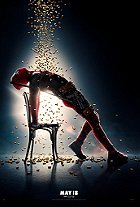



 0 comments,
0 comments, 